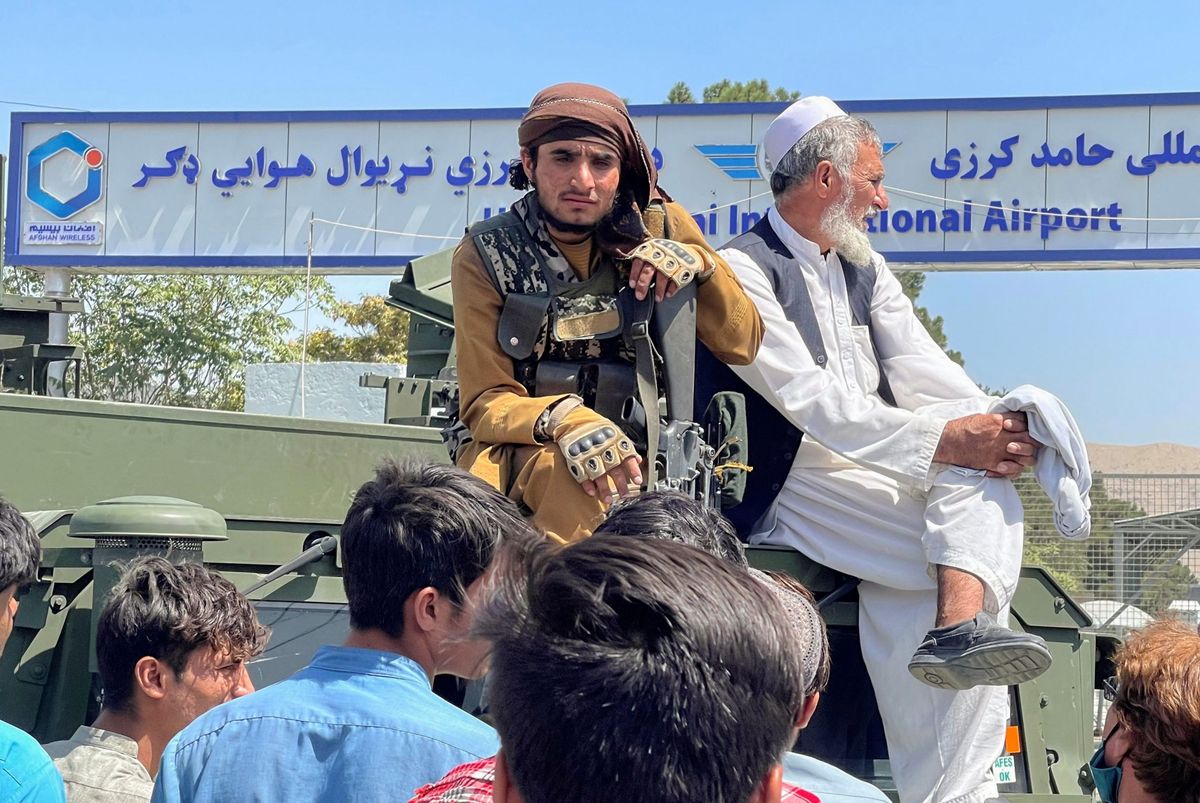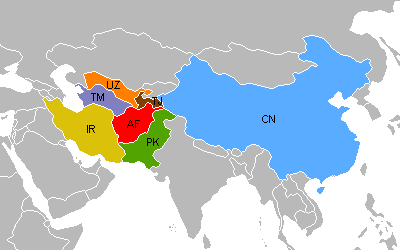How does a Taliban-controlled Afghanistan pose a risk for China?

A few minutes every morning is all you need.
Stay up to date on the world's Headlines and Human Stories. It's fun, it's factual, it's fluff-free.
“China has made it very clear,” said former Chinese Foreign Ministry official Victor Gao, “China will not allow Afghanistan to be used by any force as a threat to China.”
What’s the situation?
- Geographically, China is very close to Afghanistan, and they even share a little sliver of a border.

- More importantly though, several of the countries along China’s western border consist primarily of Muslim populations, and the influence from the Taliban is pretty strong in some of them.
- And, according to a lecturer at the Chinese Armed Police Force Academy, Uyghur “separatists” in the Xinjiang region of China had been trained in weapons and explosive devices in Taliban training camps.
- Previously, when the United States occupied Afghanistan, the threat from the Taliban was relatively mitigated, and their influence in the region was somewhat informal.
- But now that the US has pulled out of Afghanistan, the Taliban has taken control of basically the whole country.
How big of a threat is radical Islam to China?
- Islamic terrorism poses a very real threat to China.
- In 2016, a suicide bomb attack on the Chinese Embassy in Kyrgyzstan was carried out by a Uyghur militant group, according to Kyrgyz authorities.
- And last month, nine Chinese workers were killed in a suicide bombing in Pakistan, carried out by “the Pakistani Taliban out of Afghanistan,” according to officials in Islamabad.
- These attacks, China fears, could become more common in a Taliban-controlled Afghanistan that could allow radical Islam to flourish.
- China isn’t necessarily the only one worried about increased terrorism after the US pulled out of the country; the US Chairman of the Joint Chiefs of Staff, Mark Milley, issued a warning to congressional leaders Sunday saying that terrorist groups could rise in Afghanistan.
Is there any good news for China?
- Sort of. One of the opportunities for China right now is that, without the US in Afghanistan, China also has the potential to gain influence in the region.
- Foreign Minister Wang Yi met with senior Taliban officials last month, saying the Taliban would play an important role in rebuilding Afghanistan.
- But, at the meeting, Wang also demanded the Taliban cut ties with the East Turkestan Islamic Movement (ETIM), blaming it for several terrorist attacks in Xinjiang.
- “China has made it very clear,” said former Chinese Foreign Ministry official Victor Gao, “China will not allow Afghanistan to be used by any force as a threat to China.”
- The big question that remains to be seen is how the Taliban is when it comes to diplomatic agreements.
- And, according to former National Security Spokesman for former President Barack Obama, Tommy Vietor, agreements made by the Taliban “are not worth the paper they’re written on.”
What’s China saying about this whole situation?
- Chinese state media outlet Global Times has been critical of the US withdrawal, calling on the US to “correct its mistakes,” and saying that any attempt to work with China on issues in Afghanistan would have to come with respect for China’s core interests.
- “If the US wants to get China’s cooperation, it needs to show enough sincerity by taking actions to correct its mistakes, such as double standards on counterterrorism and confrontation against China in other fields, Chinese experts warned," the article wrote.
- But, China has also said that there are clear common interests between it and the US in Afghanistan, including preventing terrorism growth.
- In terms of military action, China has rejected the notion that it might send troops to Afghanistan to fill a void left by the US, calling it “totally groundless.”
- This is somewhat in line with China’s position on foreign relations, which is that it tries not to interfere internationally, but rather simply exchanges diplomatic and economic relations.
What’s next?
- There are a couple of things that will be good indicators for what we’re looking at going forward.
- First, the big question is whether or not the Taliban can be trusted to make agreements internationally that they’re willing to keep within Afghanistan.
- This will not only help China decide where to go diplomatically going forwards, but will be an indicator to the world if the Taliban is looking to control and govern the country with relative normalcy, or if it should simply be treated as a rogue state.
- Second, it remains to be seen what kind of work will be done between China and the US.
- With similar interests in mitigating terrorism, it is possible that an agreement could be met to work together in the region, but nothing has yet been openly discussed between the governments.
- Ultimately, Afghanistan is a highly volatile country right now, and stability will be required in the region for any other countries to take it very seriously, and that’s what everyone – not just China – is looking for.
Have a tip or story? Get in touch with our reporters at tips@themilsource.com







Comments ()